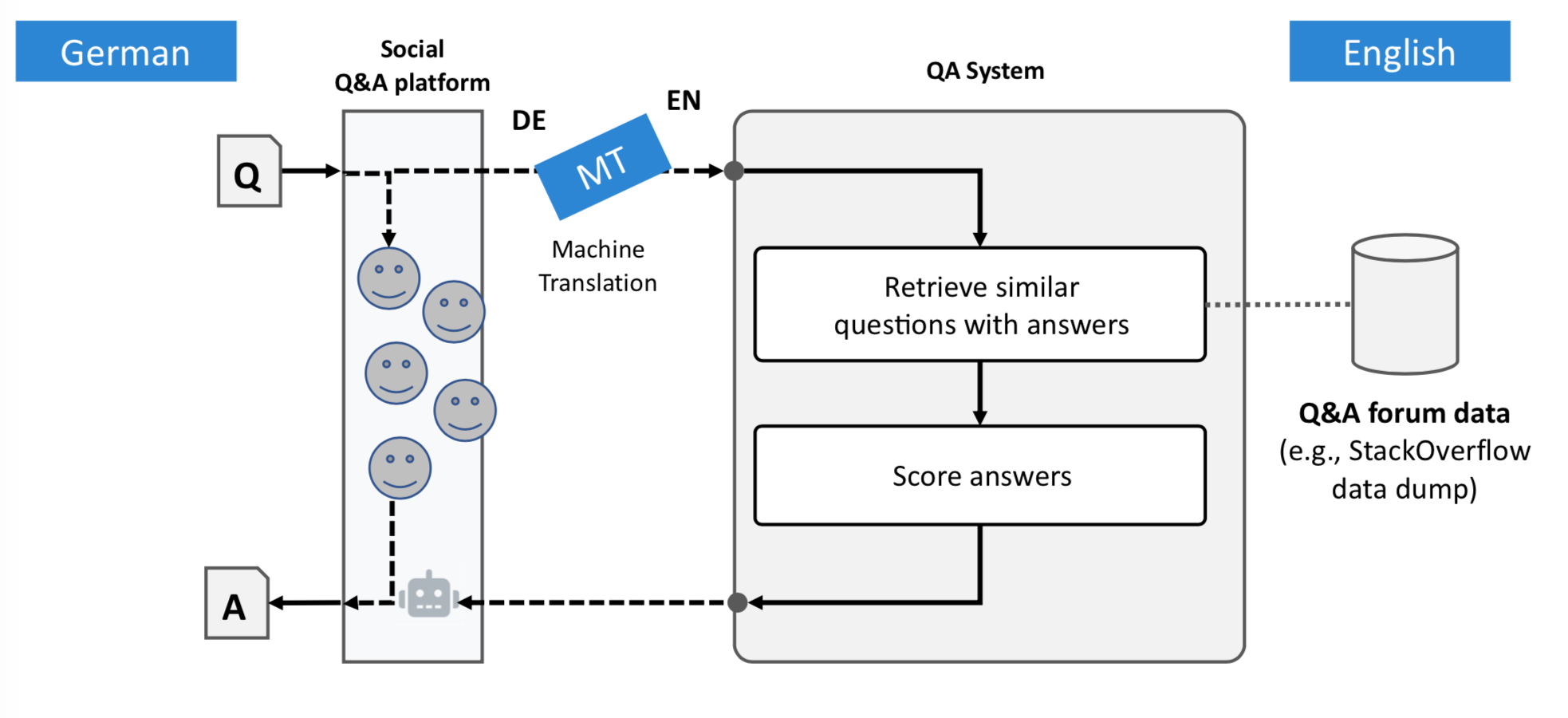Leading a SoftwareCampus Project: A Summary
I am grateful for having received a SoftwareCampus grant at the end of 2017 after a multi-stage selection process consisting of interviews and pitching the project idea to potential industry partners. The SoftwareCampus program has significantly influenced my PhD journey, and I am glad for being able to share my experiences here in the hope that it will be helpful to other PhD students that may consider applying to SoftwareCampus.
SoftwareCampus
SoftwareCampus aims to train doctoral students with outstanding academic achievements and an entrepreneurial mindset to become future IT leaders. The program in itself is truly unique: Each recipient of a SoftwareCampus grant works with an industry partner and leads a joint research project over two years. The industry partner contributes networking events, mentoring, and executive trainings. Bonus: The German Federal Ministry of Education and Research (BMBF) funds the project with up to 100,000€!
From February 2018 to March 2020 I led the project "Intelligent Search in the Social Web" and coordinated our cooperation with DATEV eG. As part of the project, I have taught seminars and guided several students and interns at UKP Lab through theses or by employing them through the project's funding.
Highlights
The most apparent advantage of SoftwareCampus is that it teaches you as a doctoral student to plan and manage your own dedicated research projects (with adequate funding). There are many other, less obvious aspects that I consider very important, including both advantages and disadvantages:
- You can expect to learn a lot of new skills. Participation in executive training courses was particularly fruitful for me. For example, I have attended training courses to learn negotiation skills, to conduct sales presentations, and to understand the different personality types in teams. I consider these skills very important, and throughout the program, I was able to strengthen them considerably. Without a doubt, participation in executive training courses is one of the biggest advantages of the program. I strongly recommend every prospective SoftwareCampus participant to book the courses as early as possible to ensure admission to the most interesting ones (they are quickly overbooked).
- The program provides a great platform to connect people that have a similar entrepreneurial mindset coming from diverse backgrounds. For instance, each executive training course is accompanied by social events. Depending on the project partner, such events might also be part of the quarterly status updates. Most notably, this facilitates having insightful discussions with other participants as well as senior executives from the project partners. You can effortlessly establish new collaborations to pursue joint projects.
- Participation in the SoftwareCampus is associated with a considerable investment of time. Writing a project proposal, applying for funding, managing and executing the project, participating in executive training courses, conducting status meetings, and finishing project reports all takes time. This may prolong the duration of the your PhD studies and you need to take this into account in your further planning. Notably, the exact amount depends on how much the project topic and PhD topic overlap.
- You'll learn to pitch ideas to a diverse audience. For example, the application process consists of pitching a project idea to HR managers, quarterly meetings with the project partner typically consist of pitching the newest ideas and results to employees, in my case from the IT and legal departments of DATEV eG. Besides, there are even more interesting formats, for example, we recorded short project pitches on video — which was a particularly exciting experience.
In summary, there are several key advantages to participating in SoftwareCampus. Most importantly, you can expect to considerably strengthen many essential skills beyond research. If the proposed project correlates strongly with your PhD topic, the time investment is moderate and it will pay off significantly. Even if the two topics are entirely different, I believe the program is an excellent way to broaden your horizon.
In the following, I briefly outline our SoftwareCampus project titled "Intelligent Search in the Social Web".
Intelligent Search in the Social Web
Our project in a nutshell:
- The amount of knowledge available on the web has grown exponentially in recent years. Online discussion forums, in particular, have gained popularity. For example, Reddit has accumulated more than 1.2 billion user comments in 2018 alone.
- Properly accessing this knowledge has considerable potential, e.g., we can use this knowledge to automatically answer questions similar to the ones that have already been discussed. Therefore, we proposed a question answering system that performs an intelligent search in online forums to identify suitable answers.
- In collaboration with DATEV eG, we defined several critical research questions that correspond to practical use-cases of such a system: How can we automatically answer programming questions posed by developers in German? How can we identify similar questions without having access to labeled training data? How can we transfer our models across different domains?
- Based upon our research questions, we have planned and carried out a number of research projects, the results of which have been incorporated into our publications (see the sidebar on the left). Parallel to our research, we developed a prototypical QA system for the integration in a social Q&A platform (see image below).
